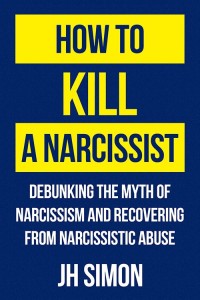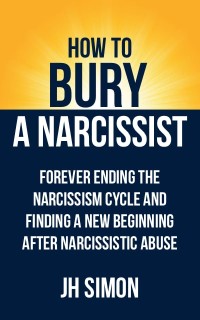In pop psychology, the idea of an ‘Empath’ is alluring on a wide scale, while also being hotly debated. There is even an assertion that Empaths are themselves narcissists. So what is really going on with Empaths, and why do they struggle so much to let narcissists go?
Seeing The Bigger Picture
After years of contemplating this topic, I still believe that the idea of an ‘Empath’ is a useful concept, especially for people who are newly awakening from narcissistic abuse.
Empaths are known as the deep feelers and sensitive creators who attract narcissists like flies. The Empath, often being unboundaried, chaotic and over-energised, tends to make for rich and easy narcissistic supply — until they wisen up.
Narcissists, as complex as they can be to understand, ultimately only want narcissistic supply. If someone is rigid, closed-off and emotionally unavailable, they would make for a lousy source of fuel for a narcissist.
Regardless of the nuances in every narcissistic relationship, there is always a ‘dominant’, more rigid person, who stands in comparison to their ‘submissive’, more flexible other. In many cases, a person can be emotionally giving in one relationship, but then fall into a rigid, narcissistic role with someone who is more codependent than them. It is almost a law of psychological physics, where trauma-bonded people balance their codependency with one person leaning avoidant, and the other growing progressively more anxious. It is from such a relationship that an ‘Empath’ emerges.
The Core Of The Empath
While some Empaths might be covert narcissists who paired up with an overt narcissist, I believe that the majority of Empaths are simply people who found themselves on the ‘wrong’ side of a relational coin.
A true Empath has been in the anxious, submissive and giving role all of their life. From the beginning, an Empath was never permitted to develop boundaries, structures or agency for themselves. To get by in their family of origin, the Empath was forced to outsource their functions to the parent, who was threatened by their child’s budding power.
Rather than being supported in honing their emotions and instincts for the purpose of self-actualisation, the Empath had every facet of their inner life shamed, attacked, ridiculed, controlled and dominated. No matter what the Empath did, they had the shadow of their dominating parent lurking over them, watching and judging their every move.
This is where the Empath’s sensitivity comes from. When your parent is unpredictable and constantly dissatisfied, you need to have a hairline emotional radar, allowing you to rapidly anticipate your parent’s reactions. By being ready to adjust on the fly, an Empath keeps themselves safe from their parent’s anger and attempts to humiliate them into submission. That is, the Empath’s sensitivity allowed them to avoid conflict before it happened.
Empaths also tend to be highly energised and expressive. This is due to their repressed emotions, which they were not allowed to express in childhood. Anger, sadness, shame, even joy; any emotional expression would have threatened the dominating parent’s fragile balance. As a result, the Empath needed to push everything down. What remains is a pressure cooker effect which carries into adulthood.
Empaths were never supported in processing, understanding and releasing their pent-up emotions. It is this which makes them attractive to narcissists, who see their emotional excesses as a rich source of supply, much like a colonial empire is attracted to the natural resources of another country.
This repression of emotional excess is also what makes Empaths creative. Having not been given the space to understand their life events, or to explore their life’s meaning and purpose, Empaths tend to have a powerful drive towards the arts. Much of what the Empath produces is unconsciously aimed at giving shape to their early trauma via the symbols they create.
From all of this we can easily understand why Empaths attract narcissists. But the question is: Why does the Empath fall for a narcissist and then struggle to let them go?
A Narcissistic Saviour Emerges
A narcissist, through their grandiose false self, tends to have a clear idea of who they are, even when who they believe they are is based on a fantasy and a lie.
In comparison, Empaths were never allowed to explore who they truly were on the inside — their focus was always on the outside, trying to please their controlling parent.
As a result, an Empath remains in arrested development. They are an amazing bundle of potential, looking to make something of themselves in the world. Yet when the Empath is stuck in an unconscious state of perpetual childhood, they feel that they need a ‘parent’ to support them. Overwhelmed by their repressed emotions, and ill-equipped to navigate their inner and outer world, the Empath clings to others for structure, direction and guidance. Yet nobody in their right mind would play the parent role for an adult.
The narcissist, however, is not in their right mind. They are more than happy to step up as the ‘higher power’; to bathe the Empath with parental energy. The narcissist, at least in the beginning, is confident and certain in who they are, and has a clear concept of how the world ‘should’ be navigated. Although the narcissist’s realm is based on a fantasy in their mind, they still appear to have it all together. This appeals immensely to the Empath, who craves to be led, as it helps calm their anxiety, confusion and emotional overwhelm.
As this kind of relationship develops, the narcissist grows addicted to the Empath for their emotional abundance, and the Empath grows addicted to the narcissist’s parental presence. Subconsciously, the Empath is ultimately looking for a path to their actualisation. What the Empath gets instead is the narcissist brainwashing them into seeing the world how they do. In effect, the Empath’s ‘ego’ is lifted off one strand at a time, and replaced with the narcissist’s grandiose expectations. The Empath gradually loses what little sense of Self they had, and evolves into someone custom-made to please their narcissist.
Imagine spending months or years training for a job that only applies to one person. How can you quit and find another job? Everything the Empath is becomes tied to the narcissist. It therefore makes sense why they would not want to let the narcissist go.















